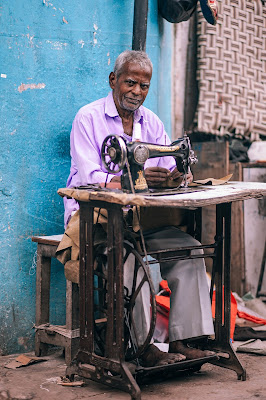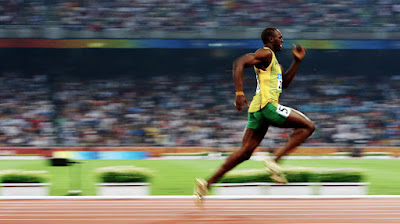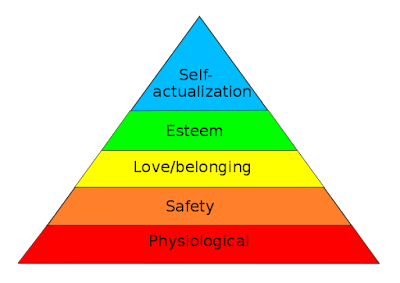How to Avoid Being TRAPPED by Your Many Years of Experience: 3 Simple Steps
After spending 20 years working at your job, you have a level of confidence that comes with solving many problems in your field and helping many people out. You believe you have seen it all.
But wait a bit. What if that is just your perception rather than the reality. Experience is good in any job but if careless, it can lure you into a pit of overconfidence. And one way to be realistic is to admit that it is almost impossible for anybody to see it all no matter what they do.
You may have even gotten a lot of praise from your co-workers or your employers but you must always be careful and vigilant. You must always know that experience in itself is not what solves problem.
Whatever career you may be in, your experience coupled with your expertise is what solves a problem. If there is an auto mechanic who has many years of experience rectifying faults in cars that operate on fuel, does that experience make him the most suitable person to rectify a fault in an electric car?
Your experience is highly valuable when you can combine it with expertise and use it to solve the problems or challenges in your field. However, when you believe you have seen it all, it’s a message that is effectively saying there is only a little to learn.
 |
| Source: Pixabay |
This is the trap that every experienced person in a job or career must be careful to avoid. It is the trap of stagnation. In every field, there are always new trends that appear regularly.
Not all of them end up becoming ground-breaking trends but some of them end up becoming game changers in a particular field. If a change like this comes around after you have spent 20 years at your job, it can be very difficult to adapt if you already have a belief you have seen it all.
Experience is good but expertise is better. People hail experience when it has solved a problem or meet the challenge it meets.
When your experience fails to meet the challenges in your job, your experience becomes derelict. You become dispensable. The organisation you work for loses confidence in you and worst of all, you lose confidence in yourself.
When experience is mixed with expertise, it brings out greatness. Your expertise however, is not a constant quality. It is a quality that can be improved upon daily.
Let’s look at the boom of the personal computer. Many have used typewriters to type their documents before personal computers became the more popular tool. If you were a secretary of 25 years in that time and you have spent all your time on typewriters, it can become difficult.
Meanwhile, the personal computer was a game changer. If you continued without learning how to use a personal computer to type a document, very soon you would have your job in danger. Despite having 25 years’ experience using a typewriter.
In this case you lacked the expertise to use the new method of solving problems in your field. All the experience in the world of using a typewriter will not save you unless it can help you adapt to the new technology.
This happens in many fields. When people feel safe in the abode of their experience, they are often slow when there is an important change in their field. Often, the people who gain most are the people who move the fastest.
During periods like these, people are looking for someone who can use the better method of solving problems. They will probably not dismiss someone who can get the job done just because he lacks experience.
They will also not hire you just because you have experience if you lack expertise in the new method.
Many organisations talk about how they value experience but most will always jump at the chance to employ people who have the highest expertise even when there are others who are more experienced but less proficient. If your experience will make you the best expert, great.
But you must always be conscious that being an expert is the most important part of the equation. If your experience fills you with so much confidence that you stop learning new things, then that confidence is doing more harm than good.
When Lionel Messi, one of the best ever footballers, won the award of the World’s best footballer in 2010, he was 22 and he won the award for four years on the trot.
There were more experienced footballers than Lionel Messi but his expertise trumped his inexperience and he was still the best even with relatively lower experience.
Confidence in experience is a plague that can also affect organisations apart from individuals. When organisations become too confident in their experience, it can lead to disasters. This is because they are too slow to adapt to game changing innovations in their field. It can be so bad that it can lead to the downfall of a company.
The Eastman Kodak Company was a giant in photography for the most part of the 20th century before it met its downfall. When digital photography came onto the scene, it was a disruptive technology and a game changer.
Dominating a field like photography for 100 years must bring about a high level of confidence. Probably, a belief in invincibility for Kodak. Kodak came late to the digital photography party that became prominent from the 1980s.
 |
| Source: Pixabay |
Today, more than 30 years later, Kodak is a ghost of the company it used to be. The 100 years of its experience in analogue photography failed to save the company.
The new challenges in photography were being met by digital photography which Kodak showed little expertise in. The little expertise and the inability to adapt quickly became the bane of the company.
In Talent is Overrated by Geoff Colvin, his research aimed to find what made people excel in their careers and one of the things they found was that experience was not the most important criterion. He said:
“It isn’t experience. Not only are we surrounded by highly experienced people who are nowhere near great at what they do, but we have
also seen evidence that some people in a wide range of fields actually
get worse after years of doing something.”
also seen evidence that some people in a wide range of fields actually
get worse after years of doing something.”
Why would someone get worse after years of doing something? One of the reasons is that they believe they have seen it all and they stop driving themselves.
How do you avoid the trap of experience?
Many have the belief that if you struggle to reach an expertise level, then you don’t need that amount of effort as you continue. But being at the top or close to the top is a very tough position to attain and even tougher to maintain.
Even if you have many years of experience and are the best in what you do today, you must still learn as if you are still new in the job. You must never make the conclusion that you have seen it all because it is impossible.
1. You must always troubleshoot for your weaknesses
There is a popular saying that a problem known is a problem half-solved. If you believe you know everything, then you will make no effort to have continual learning.
Always searching for your weak points will mean you are trying to make yourself stronger. This will make you ready when there is a change that might redirect the way things are done in your field.
Always search for your weaknesses because that is the way you can stay ahead of the competition.
The Nobel-prize winning psychologist and economist Daniel Kahneman said: “True intuitive expertise is learned from prolonged experience with good feedback on mistakes.”
2. You must always set new career goals
To continue to improve, you must always set new career goals. Setting new goals means you have new milestones to achieve and this helps you to stay sharp in your career.
One of your career goals may be to improve on any weakness you have or to explore another aspect of your field.
3. You must be a fast learner
To continue to be an expert in your field, you must be able to adapt to changes very quickly. You can be a great inventor but no matter how great you are as an inventor, you cannot invent every important thing in your field.
Someone else may invent something vital and you have to be a fast learner. The best people who continue to stay at the top of their fields don’t make all the inventions but they can learn new important things as fast as they become important.
You will notice that people like these will be the first to master the new skills and they begin to reap the gains before some people are aware of new changes.
This is a lesson we can learn from evolution. The species that survive are not necessarily the strongest but those that can adapt to changes fastest. A programmer who is an expert in HTML only may find out that that is inadequate to place him at the top of his field today.
American writer Denis Waitley said: “Never become so much of an expert that you stop gaining expertise. View life as a continuous learning experience.”
Conclusion
This post is in no way to downgrade experience. Experience is very important and it could save time and energy in many cases. But you should not have total confidence in your experience today to solve all your career problems tomorrow.
You need to learn things today and those things could be the edge you need. The catch is that as you learn new things, you even gain more experience.
If you have benefited from this post, please share with your friends. To hire the writer of this blog for your content writing solutions, go HERE.





Comments
Post a Comment
I'll like to know what you think!